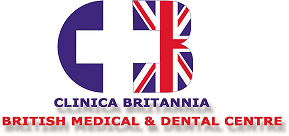Mononucleosis, also known as “mono” or the “kissing disease,” is a common viral infection that can cause fatigue, sore throat, and swollen glands. It is caused by the Epstein-Barr virus (EBV) and is most commonly seen in teenagers and young adults. In this blog post, we will discuss the symptoms, causes, and treatment options for mononucleosis.
Symptoms of Mononucleosis
The symptoms of mononucleosis usually appear 4 to 6 weeks after being exposed to the virus. The most common symptoms include:
- Fatigue: This is the most common symptom of mononucleosis and can last for several weeks or months.
- Sore throat: The throat may be sore and swollen, making it difficult to swallow.
- Swollen glands: The lymph nodes in the neck, armpits, and groin may be swollen and tender.
- Fever: A low-grade fever is common, but a high fever can occur in some cases.
- Rash: A red, raised rash may appear on the body.
- Headache: Headaches are common, and they may be accompanied by a stiff neck.
Causes of Mononucleosis
Mononucleosis is caused by the Epstein-Barr virus, which is a member of the herpes virus family. The virus is spread through contact with infected saliva, such as through kissing, sharing drinks or utensils, or coughing and sneezing. Once a person is infected, the virus can remain in their body for life, but most people do not experience any symptoms after the initial infection.
Treatment of Mononucleosis
There is no specific treatment for mononucleosis, and the virus will typically run its course in 1 to 2 months. However, there are things you can do to help relieve the symptoms and support your body’s natural healing process. These include:
- Rest: Rest is important to allow your body to recover from the infection.
- Pain relief: Over-the-counter pain relievers, such as acetaminophen or ibuprofen, can help to relieve fever, headache, and body aches.
- Hydration: Drinking plenty of fluids, such as water, herbal tea, or clear broth, can help to soothe a sore throat and prevent dehydration.
- Avoiding alcohol and tobacco: Alcohol and tobacco can weaken the immune system and make it harder for the body to fight off the infection.
- Eating a healthy diet: Eating a diet rich in fruits, vegetables, whole grains, and lean protein can help to support your immune system and promote healing.
In rare cases, complications from mononucleosis may occur, such as a swollen spleen, which can rupture and cause internal bleeding. If you experience severe abdominal pain or difficulty breathing, seek medical attention immediately.
Prevention of Mononucleosis
There is no vaccine for mononucleosis, but you can take steps to reduce your risk of infection. These include:
- Avoiding close contact with people who have mononucleosis.
- Washing your hands frequently with soap and water.
- Not sharing drinks, utensils, or personal items with others.
- Covering your mouth and nose when coughing or sneezing.
In conclusion, mononucleosis is a viral infection that can cause fatigue, sore throat, and swollen glands. While there is no specific treatment for mononucleosis, you can take steps to relieve the symptoms and support your body’s natural healing process. If you experience severe symptoms or complications, seek medical attention immediately.

